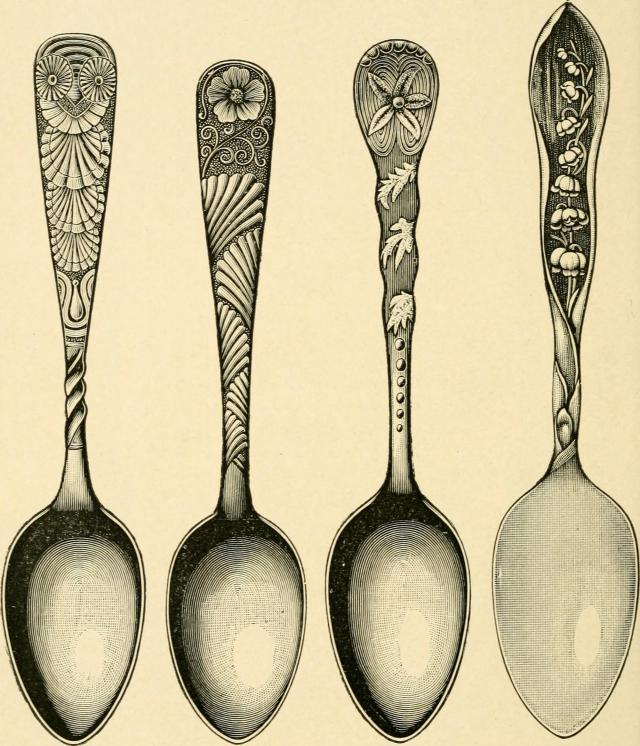 There is an allegory often falsely attributed to C.S. Lewis that in the life to come we will only be able to eat with spoons, forks, and knives that are more than a meter long. Those who are in hell will be tortured by this because they will never be able to feed themselves, while those who are in heaven will feed each other.
There is an allegory often falsely attributed to C.S. Lewis that in the life to come we will only be able to eat with spoons, forks, and knives that are more than a meter long. Those who are in hell will be tortured by this because they will never be able to feed themselves, while those who are in heaven will feed each other.
The fairly obvious point is that hell is made of selfishness while heaven is made of selflessness. Those in hell see only themselves, while those in heaven see only each other. The big problem with the illustration is that neither group seems all that interested in seeing God. Presumably, if anyone is getting fed at all in heaven, it is the Lord who will feed us.
That said, as I was pondering this image recently, it occurred to me that it works far better as an image of purgatory rather than heaven.
I went back and forth on my thoughts on purgatory before I was Catholic. I could accept the idea that there might be a state in which God removes from us the remaining stains of sin before we are able to come into His presence. This was, in fact, the understanding of purgatory that Lewis held, as he wrote about in his Letters to Malcolm. It did not distress me that such a state was not explicitly described in Holy Scripture (or at least not described in a part of Scripture that would be acceptable to Protestants). It seemed to me to fit well with the general thrust of how the Bible describes God’s interaction with us. God’s holiness is so bright and powerful that we sinners cannot walk into His presence lest we be destroyed. It is only when we are transformed and our sin is removed that we can stand before God.
But what still bothered me, at least for a time, was the gnawing suspicion that purgatory as the Catholic Church describes it adds to the completed work of Jesus Christ on the cross. If we can serve time in some sort of supernatural prison to shave off our guilt, did the sacrifice of Jesus really atone completely for us? If I can say prayers that somehow help a soul in purgatory along the path to heaven, am I not adding my own effort to that of Our Lord?
“That there should be some fire even after this life is not incredible,” said St. Augustine in the Enchiridion of Faith, Hope, and Love, “and it can be inquired into and either be discovered or left hidden whether some of the faithful may be saved, some more slowly and some more quickly in the greater or lesser degree in which they loved the good things that perish, through a certain purgatorial fire.” Love lives right at the center of the doctrine of purgatory, but it is not only the love that comes directly from God but the love that God diffuses in and through us. The extent to which we have given and received love determines the degree to which we suffer as we move towards our ultimate union with God.
Believing my prayers for a person in purgatory are effective is no more an addition to the work of Jesus than it is to believe my prayers for a friend in the hospital are effective. It is my own union with God, forged in His love, that makes such prayer effective. I operate not as an independent agent, dispensing my own graces, but as a part of the Body of Christ, humbly assumed as an instrument of His love. Could He do it without me? Sure. But He chooses to do it through me, by means of my prayers, and in so doing He purifies me as well by making me look outside of myself. As I become more loving in this life, I grow closer to a fully realized communion with God in the next.
Sometimes we envision the purifying fire of God as something external, burning away impurities in much the same way that a flame burns off rust or melts wax. But if all purgatory is good for is changing our external appearance, to hell with it. The purity we need is in our hearts, as Our Lord so aptly points out (Matthew 15:10-20). That is a transformation that cannot happen in an individualistic way. It cannot just be me and Jesus. It must be me in Jesus, loving those whom He loves, losing all sense of self-possession in favor of a new identity as one who loves in Christ.
I have dear friends who have died who were true and lively believers. They may already be in heaven. Or they may be in purgatory. I do not know. I rejoice for them either way since either ultimately leads into God’s embrace. Sometimes I pray for them and sometimes I ask them for their prayers for me. If they are already in heaven, I imagine my prayers for them do them no harm. If they are in purgatory, perhaps my prayers for them might do them some good. But even if they are in purgatory, I am sure that they benefit from the opportunity to offer prayers for me and others. Every calling out of the self, every calling to use the long forks and spoons to feed others, is a small act of purification, offered not in competition with the completed work of Jesus but in continuity with it as a genuine fruit of the Spirit.
That Jesus would live as one of us and die for us is the ultimate blessing. That we get to participate in the manifestation of that grace, not only in our own hearts but in the hearts of others, is as deep a love as I can imagine.
Advertisements Share this:




